第29章 OF THE DIFFERENCE OF MANNERS(2)
Vainglorious men,such as without being conscious to themselves of great sufficiency,delight in supposing themselves gallant men,are inclined only to ostentation,but not to attempt;because when danger or difficulty appears,they look for nothing but to have their insufficiency discovered.
Vain,glorious men,such as estimate their sufficiency by the flattery of other men,or the fortune of some precedent action,without assured ground of hope from the true knowledge of themselves,are inclined to rash engaging;and in the approach of danger,or difficulty,to retire if they can:because not seeing the way of safety they will rather hazard their honour,which may be salved with an excuse,than their lives,for which no salve is sufficient.
Men that have a strong opinion of their own wisdom in matter of government are disposed to ambition.Because without public employment in counsel or magistracy,the honour of their wisdom is lost.And therefore eloquent speakers are inclined to ambition;for eloquence seemeth wisdom,both to themselves and others.
Pusillanimity disposeth men to irresolution,and consequently to lose the occasions and fittest opportunities of action.For after men have been in deliberation till the time of action approach,if it be not then manifest what is best to be done,it is a sign the difference of motives the one way and the other are not great:
therefore not to resolve then is to lose the occasion by weighing of trifles,which is pusillanimity.
Frugality,though in poor men a virtue,maketh a man unapt to achieve such actions as require the strength of many men at once:
for it weakeneth their endeavour,which to be nourished and kept in vigour by reward.
Eloquence,with flattery,disposeth men to confide in them that have it;because the former is seeming wisdom,the latter seeming kindness.
Add to them military reputation and it disposeth men to adhere and subject themselves to those men that have them.The two former,having given them caution against danger from him,the latter gives them caution against danger from others.
Want of science,that is,ignorance of causes,disposeth or rather constraineth a man to rely on the advice and authority of others.
For all men whom the truth concerns,if they rely not on their own,must rely on the opinion of some other whom they think wiser than themselves,and see not why he should deceive them.
Ignorance of the signification of words,is want of understanding,disposeth men to take on trust,not only the truth they know not,but also the errors;and which is more,the nonsense of them they trust:for neither error nor nonsense can,without a perfect understanding of words,be detected.
From the same it proceedeth that men give different names to one and the same thing from the difference of their own passions:as they that approve a private opinion call it opinion;but they that mislike it,heresy:and yet heresy signifies no more than private opinion;but has only a greater tincture of choler.
From the same also it proceedeth that men cannot distinguish,without study and great understanding between one action of many men and many actions of one multitude;as for example,between the one action of all the senators of Rome in killing Catiline,and the many actions of a number of senators in killing Caesar;and therefore are disposed to take for the action of the people that which is a multitude of actions done by a multitude of men,led perhaps by the persuasion of one.